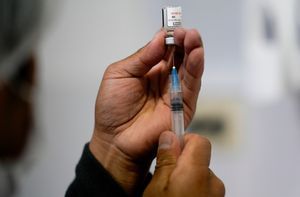
A recent study has discovered many genetic signals that could influence blood pressure.
According to the study published in Nature Genetics, over 100 new areas and more than 2,000 independent genetic signals in the human genome could affect blood pressure.
Researchers from Queen Mary University of London gathered and analyzed genetic information from over a billion individuals from sources such as the UK Biobank, the International Consortium for Blood Pressure, the United States Department of Veterans Affairs’ Million Veteran Program, and Vanderbilt University Medical Center.
The research team identified 113 genomic loci in the human genome and found over 2,000 independent genetic signals related to blood pressure across all human genomes.
The researchers explained in detail that while genetic mutations within a specific area on the chromosome, known as a gene locus, are typically similar, independent signals exist in addition to these.
The team expected that each could influence blood pressure regulation through different biological mechanisms since it is known that no correlation exists between gene loci and independent genetic signals.
The experts further stated that given the wide variety of biological mechanisms influencing blood pressure, in addition to acquired habits and environmental risk factors, more research is needed on blood pressure’s polygenicity – the trait of being influenced by thousands of genetic variations. While each genetic mutation has a minute effect on blood pressure individually, the researchers expect that a polygenic risk score that combines the impact of all blood pressure-related genetic mutations into a cumulative score could help assess a patient’s genetic risk for high blood pressure.
In practice, they found that participants classified as genetically high-risk using the polygenic risk score had systolic blood pressure that was approximately 17 millimeters of mercury (mmHg) higher on average than those classified as low-risk. Additionally, the high-risk group was seven times more likely to develop high blood pressure than the low-risk group.
Since human genes and genetic risk scores are fixed values that do not change throughout a person’s life, calculating the genetic risk score early could enable meticulous management and intervention to lower blood pressure in high-risk individuals.
Experts hope that predicting future risks of high blood pressure could lead to the development of new treatments and therapeutic methods for patients with high blood pressure.










Most Commented